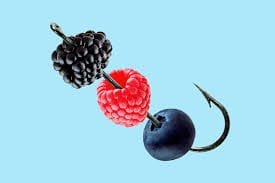The Lure of the Wellness Industry
The wellness industry encompasses meditation, food, and mindfulness. It has become a booming market. With the global wellness economy valued in the billions, many see it as an opportunity to make quick money. Do you really need that “singing bowl” or “hydrogen water”? No, you don’t.
The Risks of the Wellness Industry
Unfortunately, many people seeking self-improvement or a healthier lifestyle become targets of scams, misinformation, and unethical practices. This article highlights some of the most common scams and provides tools to help you evaluate wellness claims.
Common Wellness Industry Scams and How to Spot Them
Meditation Scams
Meditation and mindfulness have proven benefits for mental health. However, not all programs are trustworthy. Be cautious of meditation apps or courses promising instant results or claiming to have a “secret” method. Meditation is a personal journey, and what works for one person may not work for another.
Food and Diet Scams
The food and diet sector is full of misleading claims. Be skeptical of any diet plan or supplement that promises rapid weight loss, a “magic” cure for diseases, or a “miracle food.” If something sounds too good to be true, it probably is.
Mindfulness Scams
Mindfulness is another area where people get scammed. Overpriced courses and certifications often promise expertise in a short time. However, mindfulness, like meditation, is a lifelong practice.
How to Verify Wellness Sources
To avoid falling for these scams, it’s essential to evaluate wellness sources carefully. Here’s how:
Check Credentials
A credible source should have verifiable credentials. Look for degrees in nutrition, certifications in mindfulness instruction, or a reputable history of meditation practice.
Look for Scientific Backing
Reliable wellness sources cite scientific studies. Be wary of claims that rely only on anecdotal evidence or personal testimonials.
Consider the Cost
While some expenses are expected, be cautious of overpriced services or those requiring large upfront payments.
How to Identify Trustworthy Books and Resources
Choosing reliable books and resources can be challenging. Here are some tips:
Read Reviews
Before purchasing a book or signing up for a course, check multiple reviews. Look for patterns. If many people report the same issue, it could be a red flag. Also, be wary of overly positive reviews with smiling profile pictures—these might be fake.
Check the Author’s Credentials
Just like other wellness sources, reputable authors should have expertise in their subject matter.
Look for Cited Sources
A reputable book will include a bibliography or list of sources, showing that the author has done their research.
The Wellness Industry “Must-Have” Trap
Beyond misinformation, the wellness industry often sells unnecessary or overpriced products marketed as “must-haves.”
Beware of Overpriced Wellness Items
Wellness and fitness gadgets often have inflated prices. While some, like heart rate monitors, offer benefits, others add little value. For instance, meditation cushions can be expensive when a simple pillow works just as well. Before buying, ask yourself if a cheaper alternative exists.
The Illusion of “Superfoods”
Some foods are nutritionally dense, but the term “superfood” is largely a marketing tool. A balanced diet with a variety of foods provides the necessary nutrients without expensive, exotic ingredients.
Here are examples of overpriced “superfoods”:

- Goji berries: Nutritious but often overpriced. Similar benefits exist in other berries.
- Spirulina and green powders: Can be healthy but don’t replace whole foods.
- Manuka honey: Has unique properties but is often too expensive compared to regular honey.
- Expensive protein powders: Many cheaper options exist with similar benefits.
- Chia and hemp seeds: Nutritious but overpriced.
- Alkaline or hydrogen water: No proven benefits over regular water.
- Apple cider vinegar: Some benefits but not a cure-all.
- Detox teas: Often misleading weight-loss claims.
- Acai and pitaya (dragon fruit): Nutritious but costly due to marketing.
- Coconut oil: Useful but often overhyped.
Essential Oils and Supplements
Many essential oils and supplements claim to cure everything from the common cold to chronic diseases. While some can support wellness, exaggerated claims are common. Always consult a healthcare provider before trying new supplements.
Wellness Fashion and Mindfulness Gimmicks
The wellness industry has extended into fashion, selling everything from “mindfulness jewelry” to “energized clothing.” While personal preferences vary, these items are unnecessary for true mindfulness or meditation.
Examples include:
- Overpriced meditation cushions
- Designer mindfulness journals
- Crystal healing sets
- Expensive incense or aromatherapy oils
- Luxury meditation clothing
- High-cost singing bowls
- Branded mala beads
- Subscription-based meditation apps
- Overpriced meditation bells or chimes
- Costly mindfulness coloring books
- High-end “meditation” teas
- Meditation-themed wall art
- “Mood-enhancing” lighting
- Luxury “mindfulness” candles
- Pricey guided meditation downloads
- Expensive meditation retreats
- Costly Zen garden kits
- Meditation jewelry
- Overpriced anti-stress toys
- High-cost mindfulness card decks
- “Meditative” sound machines
A Wise Consumer is a Wellness Warrior
In your pursuit of wellness, remember that simplicity often beats complexity. You don’t need expensive gadgets, exotic superfoods, or energized clothing to meditate, eat well, or practice mindfulness.
Be a critical consumer. The most important wellness tool is your own body and mind. To navigate the wellness industry wisely:
- Educate yourself.
- Be skeptical of extravagant claims.
- Prioritize your well-being over trends.
While scams exist, many legitimate wellness sources also provide valuable information and tools. Stay vigilant, do your research, and trust your instincts. If something doesn’t feel right, it probably isn’t.
How to Navigate the Sea of Soda Alternatives
For more insights into wellness choices, check out our next article.
How to Navigate the Sea of Soda Alternatives

